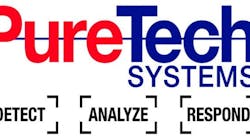In the past 20 years, I have closed hundreds of industry acquisitions – both as lawyer and broker, working for both buyers and for sellers. There is plenty of deal activity out there, especially given the industry’s mix of baby boomer owners and the need for strong players to replace attrition each year.
With 2018 shaping up to be another busy one for security industry mergers and acquisitions, here are five insights for industry buyers and sellers:
1. Buying an alarm company is a science. Buying an alarm company is mostly about the numbers. There are other factors that come into play, but the deal won’t work if the numbers don’t work.
If you are a new strategic buyer, model the deal – purchase price, cost of capital, attrition, holdbacks, acquisition related costs and return on interest. Will it work given reasonable assumptions? If you are not an expert, seek counsel from an expert financial professional.
There is also a list of important diligence undertakings a buyer must successfully accomplish, ranging from confirming a series of basic legal issues (such as the seller’s authority to do the deal) to ensuring a buyer doesn’t end up paying the seller’s unpaid state taxes post-closing. Inadequate due diligence? Caveat emptor!
In the final analysis, have the right team of “scientists” if you are a buyer.
2. Selling an alarm company is an art form. On the selling side, the art is about how to get the best deal possible – even working to “draw back” some of the buyer’s upside in the deal.
Buyers value targets based on financial benchmarks. Sophisticated buyers rely on cash flow valuations to make sure RMR valuations make sense (are you really sure the deal is profitable at 36 times? What about 40?).
The “art” on the selling-side is convincing the buyer to share upside in purchase price or other accommodations. Most sellers are experts in alarms – very few are experts in deals; thus, a smart seller retains an artist to “paint the right picture.”
3. Prepare for exit on day one. Your upside is to sell your RMR at a healthy multiple. If that is your goal (it probably should be), the recipe should be to run the business each day as if you intend to sell the next day. That begins on your first day in business and never stops until a sale is closed.
The recipe includes efficient sales efforts, effective subscriber saves, enforceable contracts, clean communications paths, updated financial records, and sensible contracts with employees, sub-contractors, suppliers and service providers.
4. Top-dollar sellers get paid for their selling machine. Here’s an insider’s secret: It is one thing to buy an attriting pool of accounts; It is quite another to buy a well-oiled sales machine that replaces attrition and then some. That difference adds up to several multiples in the purchase price.
I have seen too many tired operators sell long after they lost their mojo, which means they did not get as much as they could. Timing is everything. Get out at the right time. If not, make sure you have the endurance to hit it on all cylinders until you do. If you want top dollar, show the buyer your well-oiled sales machine.
5. Be sure your deal is a win-win. There’s nothing worse than buyer or selling banking on a “gotcha.” If the deal doesn’t work for both sides, the deal will not work for either side, and you can expect trouble post-closing.
A buyer might get away with this approach nine deals out of 10 but the 10th will likely make up for any advantage in the first 9. Plus it is a small industry, and buyers (and sellers) end up with reputations.
I have counseled more than one seller to take a slightly lesser offer from a more reputable buyer. The multiple is important, but the net purchase price is what is most important. Keep your eyes on the prize.
Eric Pritchard is a Philadelphia lawyer who works to make the world safer for security and life safety providers. Contact him at [email protected]. This column does not constitute legal advice; contact an attorney with questions.


